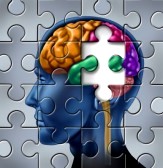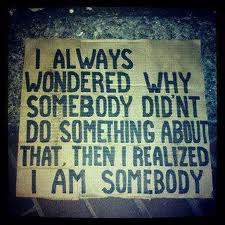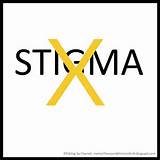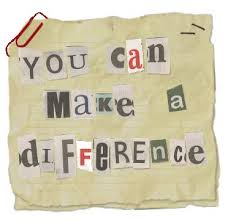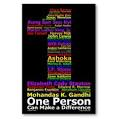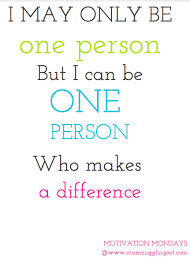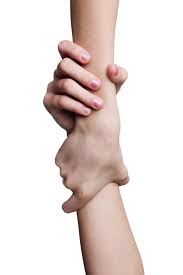When I realized how very angry at the world I was, I knew that for the sake of my health, I HAD to do something. But what? I thought long and hard and decided to work on myself to release my anger. First, I had to stop blaming my son for daring to contract schizophrenia! Then I had to stop blaming psychiatrists for not being able to cure him. There is no known cure, but medications help so many people so why not our son? As I am a writer, I churned out short, murder stories, and in every single one, the unfortunate person who was murdered, was a psychiatrist. That was destructive too, so slowly, I turned elsewhere. Oh, I didn’t stop writing, but I wrote different kinds of stories. My family fought with me to banish schizophrenia from our son’s mind but it took 16 years for us to realize that our firstborn was medication resistant and that maybe, just maybe, he had stopped taking his pill. Eventually, he gave up his battle to fight his demons and jumped from a tall building. Life as we had known it, crashed.
When my late husband was diagnosed with Alzheimer’s disease, once again my anger flared up. Another brain illness in the same family? How could this occur? And why? My late husband was a gentle soul, a man I’d met when I was 18 years old and lived with happily for 51 years. He was the one who’d kept us going while schizophrenia ran rampant through our lives. He was the one who had the ability to give unconditional love. Granted, the Alzheimer years put a strain on us all, but somehow, we got through that too. I continued to invite friends over, went out when I could and gave my late husband all the support I could muster – and so did our daughters. But, my anger was still there, simmering, waiting to ignite. I knew that I had to get rid of it – some of it at least, once and for all, and forgive.
What does forgiveness mean? It means letting go of and accepting what has occurred, because no matter what I did, the position wasn’t likely to change. Forgiveness meant dismissing blame. I didn’t choose to have those two illnesses in my family, illnesses that caused us all so much hurt. I could have chosen not to let my anger build up, but at that stage, I simply didn’t know how to do so.
To me, forgiveness meant looking at my pain and learning lessons from it.
To me, forgiveness meant starting over with the knowledge that I might have gained something after all.
To me, forgiveness meant letting go of the need for revenge and releasing negative thoughts of resentment and trying to erase all the bitterness I was feeling. As a parent, wasn’t I in the position to be a model for my daughters? Shouldn’t I have shown them that I could forgive as well as show them how to do so? If my daughters watched this process in me, wouldn’t they learn not to harbor resentment over the ways in which life might have disappointed them? I think that forgiveness is a valuable skill for everyone to practice.
I knew somehow, that I had to acknowledge my inner pain and express my emotions in a non-belligerent manner. It was my way of protecting myself from my feelings of victimization. Was I blaming myself for the fact that our son had developed schizophrenia? On the conscious level, I don’t think so but go figure. Even after my son left us in a way that no parent should ever have to experience, I didn’t think that I blamed myself. He simply could no longer bear to hear the voices. He could no longer bear having no peace of mind. Stigma also played a large part here. The harsh stigma surrounding schizophrenia and Alzheimer’s played a part in the way I behaved. At first, I was unable to talk about the fact that my son, MY SON was in a psychiatric hospital. What would people say about him, about my family, about me? Of course they must have known, as bad news travels fast and I heard later that news of his illness had traveled fasted than sound. I doubt that anybody who knew and loved us thought badly of us, but it was news, after all. If by any chance, anyone felt the need to say anything nasty about my family, I know now that it was not worth bothering with them or continuing our friendship, but then, I was unable to think clearly.
After our son’s death, a Realtor who lived in the next street came to ask whether we wanted to sell our house. ‘Surely you need a smaller house now?’ she asked. ‘Surely you won’t be able to live here where all your memories lie?’ Did I have to forgive her for the bad taste shown for the sake of her business? Did I have to forgive the family whose children were at preschool with my son yet crossed the road whenever they saw me? they probably didn’ know what to say. But, when he died, they all came to his funeral.
I had to let go of all my negative thoughts. I had to banish my resentment and bitterness and the usual question, ‘why my family?’ So I acknowledged my pain. I realized that forgiveness did not mean pretending that everything was okay. Forgiveness was a difficult challenge for me but so was letting go. Make no mistake. This took a very long time; years, in fact. To me it meant that I had to be able to meet a psychiatrist without my stomach starting to ache, without wanting to punch him/her in the face, without blaming him for the fact that I’d lost my son due to the incompetence or inability of psychiatry to help our family. I had to reconcile with that profession and realize that people die every day from all kinds of illnesses due to the fact that the medical profession is not a ‘cure-all’ one.
For me, writing is cathartic and over the years, I have written and continue to write about mental illness and Alzheimer’s. Grief and grieving is also a part of this process. I have given talks in various countries and at home; attended, and run support groups, and now, I blog three times a week, knowing that many people gain some support by reading what I have been through and I tell people not to pretend that a tragedy or other upsetting incident did not happen.
Yes, the fact that I can still smile and have the ability to enjoy the good things that come my way, enable me to say that I have managed to cope.
daughters. But, my anger was still there, simmering, waiting to ignite. I knew that I had to get rid of it once and for all and forgive.
What does forgiveness mean? It means letting go of and accepting what has occurred, because no matter what I did, the position wasn’t likely to change. Forgiveness meant dismissing blame. I didn’t choose to have those two illnesses in my family, illnesses that caused us all so much hurt. I could have chosen not to let my anger build up, but at that stage, I simply didn’t know how to do so.
To me, forgiveness meant looking at my pain and learning lessons from it. To me, forgiveness meant starting over with the knowledge that I might have gained something after all.
To me, forgiveness meant letting go of the need for revenge and releasing negative thoughts of resentment and trying to erase all the bitterness I was feeling. As a parent, wasn’t I in the position to be a model for my daughters? Shouldn’t I have shown them that I could forgive when possible as well as show them how to do so? If my daughters watched this process in me, wouldn’t they not to harbor resentment over the ways in which life might have disappointed them? I think that forgiveness is a valuable skill for everyone to practice.
I knew somehow, that I had to acknowledge my inner pain and express my emotions in a non-belligerent manner. It was my way of protecting myself from my feelings of victimization. Was I blaming myself for the fact that our son had developed schizophrenia? On the conscious level, I don’t think so but go figure. Even after my son left us in a way that no parent should ever have to experience, I didn’t think that I blamed myself. He simply could no longer bear to hear the voices. He could no longer bear having no peace of mind. Stigma also played a large part here. The harsh stigma surrounding schizophrenia and Alzheimer’s played a large part in the way I behaved. At first, I was unable to talk about the fact that my son, MY SON was in a psychiatric hospital. What would people say about him, about my family, about me? Of course they must have known, as bad news travels fast and I heard later that news of his illness traveled fasted than sound. I doubt that anybody who knew and loved us thought badly of us, but it was news, after all. If by any chance, anyone felt the need to say anything nasty about my family, I know now that it was not worth bothering with them or continuing our friendship, but then, I was unable to think clearly.
After our son’s death, a Realtor who lived in the next street came to ask whether we wanted to sell our house. ‘Surely you need a smaller house now,’ she said. ‘Surely you won’t be able to live here where all your memories are?’ Did I have to forgive her for the bad taste shown for the sake of her business? Did I have to forgive the family whose children were at preschool with my son yet crossed the road whenever they saw me? After all, when he died, they all came to his funeral.
I had to let go of all my negative thoughts. I had to banish my resentment and bitterness and the usual question, ‘why my family?’
So I acknowledged my pain. I realized that forgiveness did not mean pretending that everything was okay. Forgiveness was a difficult challenge for me but so was letting go. Make no mistake. This took a very long time; years, in fact. To me it meant that I had to be able to meet a psychiatrist without my stomach starting to ache, without wanting to punch him/her in the face, without blaming him for the fact that I’d lost my son due to the incompetence or inability of psychiatry to help our family. I had to reconcile with that profession and realize that people die every day from all kinds of illnesses due to the fact that the medical profession is not a ‘cure-all’ one.
For me, writing is cathartic and over the years, I have written and continue to write about mental illness and Alzheimer’s. Grief and grieving is also a part of this process. I have given talks in various countries and at home; attended, and run support groups, and now, I blog three times a week, knowing that many people gain some support by reading what I have been through and I tell people not to pretend that a tragedy or other upsetting incident did not happen.
Yes, the fact that I can still smile and have the ability to enjoy the good things that come my way, enable me to say that I have managed to cope.
 IF you are not well, tell yourself that you must get help. Not next week or next month, but tomorrow. If you are suffering from an illness, the most difficult words to say are; I need help. And if you are dealing with a mental illness, it’s that much harder.
IF you are not well, tell yourself that you must get help. Not next week or next month, but tomorrow. If you are suffering from an illness, the most difficult words to say are; I need help. And if you are dealing with a mental illness, it’s that much harder.







